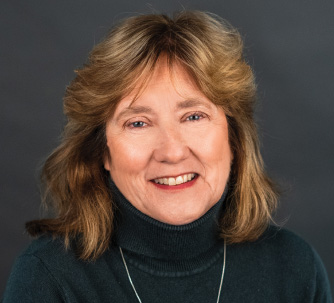Vice Dean of Graduate Medical Education & Professor, Marshall University School of Medicine

By Emily Pellham
There is no fear in being the first for Paulette Wehner. Instead, there is a fondness for blazing trails that others can follow. Wehner, current professor of internal medicine and cardiology and vice dean of graduate medical education (GME) at the Marshall University School of Medicine, was the first in her family to pursue education and a career in the medical field.
Wehner received her undergraduate degree in psychology from Notre Dame as part of the eighth class of women at the university. She then went on to medical school at Marshall University and completed both an internal medicine residency and a cardiology fellowship at the Marshall University School of Medicine. She later finished another interventional cardiology fellowship at Marshall and Charleston Area Medical Center.
“Cardiology is my chosen specialty because of the content and how that system made sense. At the time, it was also a challenge because very few women were in the specialty,” says Wehner.
At the beginning of her career, Wehner was the first female interventional cardiologist in the state and later the first female American College of Cardiology governor for West Virginia. In addition to her desire to study cardiology, Wehner was always drawn toward education.
“Oddly, I was always an educator, regardless of the level of my own training. I always taught medical students and residents and then became the program director in cardiology,” Wehner says. “Now the path has led to vice dean, assuring compliance of all the graduate medical education programs at Marshall.”
In her current position, Wehner is able to help develop medical school graduates into specialty physicians and support the program directors of the residency and fellowship programs at Marshall University School of Medicine.
“I get to watch medical school graduates become competent, independent physicians,” says Wehner. “What I like best is seeing the growth of all involved and watching young physicians complete their training and become competent physicians.”
Through Wehner’s involvement in mentoring and training young medical professionals, she has earned a series of awards and honors. Some of these include Teacher of the Year, Mentor of the Year, Lifetime Achievement Award in Cardiology, American College of Cardiology Governor, Faculty Impact Award, Inaugural Distinguished Women in Medicine and Science Award and the Award for Excellence in Leadership.
Despite having been awarded many times, Wehner expresses her highest honor as something more personal.
“I have received multiple mentoring awards, but that really does not mean as much as when a former student sends you a text and says, ‘Hey, I remember what you taught me in EKG class, and it saved a life today because I remembered.’ That is the best feeling ever,” she says.
Not only does Wehner serve others through education and mentorship, but she is also an active member of her community. Inspired by her daughters, Wehner and her family have provided support and supplies for the Eastern Cabell County Humanities Organization, Huntington City Mission and local flood relief. Through the GME office, Wehner has supported coat drives and Kids in White Coats for Big Brothers Big Sisters. Through her involvement with Women in Medicine, she helped with an event for Branches Domestic Violence Shelter. In her current position as director of GME, she was also able to sponsor staff and residents to participate in the Turkey Trot to raise funds for Little Victories Animal Shelter.
In addition to Wehner’s achievements in teaching and instructing, she is especially proud of the current Marshall Community Health Consortium Rural General Surgery Residency Program that she is spearheading. Through this residency program, Wehner hopes to create more accessibility to health care in rural areas of West Virginia.
Growing up in Kingwood, WV, and returning for medical school and later a career at Marshall University, Wehner has always had a connection to the Mountain State.
“My current connection is strong, and my proudest accomplishment is providing trained, competent physicians to the state of West Virginia,” says Wehner. “I love to tell people that my current position provides the citizens of the state of West Virginia, and the rest of the country, physicians for tomorrow.”
Rural Surgery Residency Program
The Marshall Community Health Consortium Rural General Surgery Residency Program is one-of-a-kind.
The Rural General Surgery Residency is a five-year program and the first in the nation to be accredited by the Accreditation Council for Graduate Medical Education (ACGME) and with ACGME Rural Track Program designation across all specialties. The program is designed with the intention to train residents who will ultimately have a successful practice in a rural community.
To achieve this mission, the program’s complement is a smaller number of individuals. This way, there are enhanced learning opportunities, a close-knit peer group and one-on-one time with attending physicians. The program participants will learn the unique challenges faced in a rural facility while engaging in a very specific academic medical center-based training program.
Another unique aspect of the Rural General Surgery Residency is that residents will get to join and collaborate with a sister program—the Marshall University General Surgery Residency Program. In addition, Jodi Cisco-Goff, M.D., FACS, and James Paugh, D.O., at Logan Regional Medical Center will be training residents for at least 50% of the instruction during the five years.
Residents will be participating in joint didactics with the sister program as well as sharing sites at Cabell Huntington Hospital and St. Mary’s Medical Center. Even more exciting, the program will offer a simulation center for the trainees at the rural site to enhance education and instruction.








